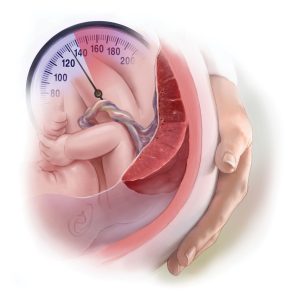Table of Contents
Hypertension during pregnancy, also known as gestational hypertension or pregnancy-induced hypertension (PIH), is a condition that can pose significant risks to both the mother and the baby. Understanding the implications, symptoms, and management strategies is crucial for ensuring a successful pregnancy with high blood pressure.
The Relationship Between Diabetes and Hypertension During Pregnancy
Diabetes and hypertension often coexist and can complicate pregnancy. Women with diabetes are at a higher risk of developing hypertension during pregnancy, which can lead to a range of complications including preeclampsia, preterm birth, and complications during delivery. Managing both conditions effectively is vital for maternal and fetal health.
Normal Blood Pressure for Pregnant Women
For most pregnant women, a normal blood pressure reading is below 120/80 mm Hg. However, blood pressure can vary throughout pregnancy, and slight elevations may not be immediately concerning. Regular monitoring is essential to catch any significant changes early.
Low Blood Pressure During Pregnancy
While high blood pressure garners most of the attention, low blood pressure during pregnancy can also be an issue. Symptoms like dizziness, fainting, and fatigue can be common. It is important to stay hydrated and avoid prolonged standing to manage these symptoms.
When Should Swelling During Pregnancy Be a Concern?
Swelling, particularly in the feet and ankles, is common during pregnancy. However, sudden or severe swelling, especially in the hands and face, can be a sign of preeclampsia, a serious condition that requires immediate medical attention.
Why Do Doctors Prescribe Aspirin During Pregnancy?
Doctors may prescribe low-dose aspirin during pregnancy to women who are at high risk of preeclampsia. Aspirin can help reduce the risk of developing this condition by improving placental blood flow and reducing inflammation.
High Blood Pressure After Pregnancy
High blood pressure can persist even after the baby is born, a condition known as postpartum hypertension. It is crucial to continue monitoring blood pressure levels and follow the doctor’s advice to manage this condition effectively.
120 Resting Heart Rate While Pregnant
A resting heart rate of 120 beats per minute (bpm) can be higher than normal during pregnancy, where the typical range is 60-100 bpm. Increased heart rate can be due to the additional stress on the body as it supports the growing baby. If you notice consistently high heart rates, consult your healthcare provider.
When Do You Start Showing Second Pregnancy?
In the second pregnancy, women often start showing earlier than they did in their first pregnancy. This is due to the abdominal muscles being stretched from the previous pregnancy. Typically, women begin to show between 12 to 16 weeks.

Managing PIH Pregnancy for a Successful Outcome
Successfully managing PIH involves regular prenatal check-ups, lifestyle modifications, and possibly medication. Adopting a healthy diet, engaging in regular physical activity, and avoiding smoking and alcohol can help manage blood pressure levels.
Key Takeaways for Managing Hypertension During Pregnancy
- Regular Monitoring: Keep a close watch on blood pressure levels throughout pregnancy.
- Healthy Lifestyle: Maintain a balanced diet and engage in regular, moderate exercise.
- Medical Guidance: Follow your doctor’s advice, including any prescribed medications or supplements like low-dose aspirin.
- Immediate Attention: Seek immediate medical attention for severe symptoms such as extreme swelling, severe headaches, or changes in vision.
By understanding the risks and taking proactive steps, pregnant women with hypertension can improve their chances of a healthy pregnancy and delivery. Always consult healthcare professionals for personalized advice and treatment plans.
